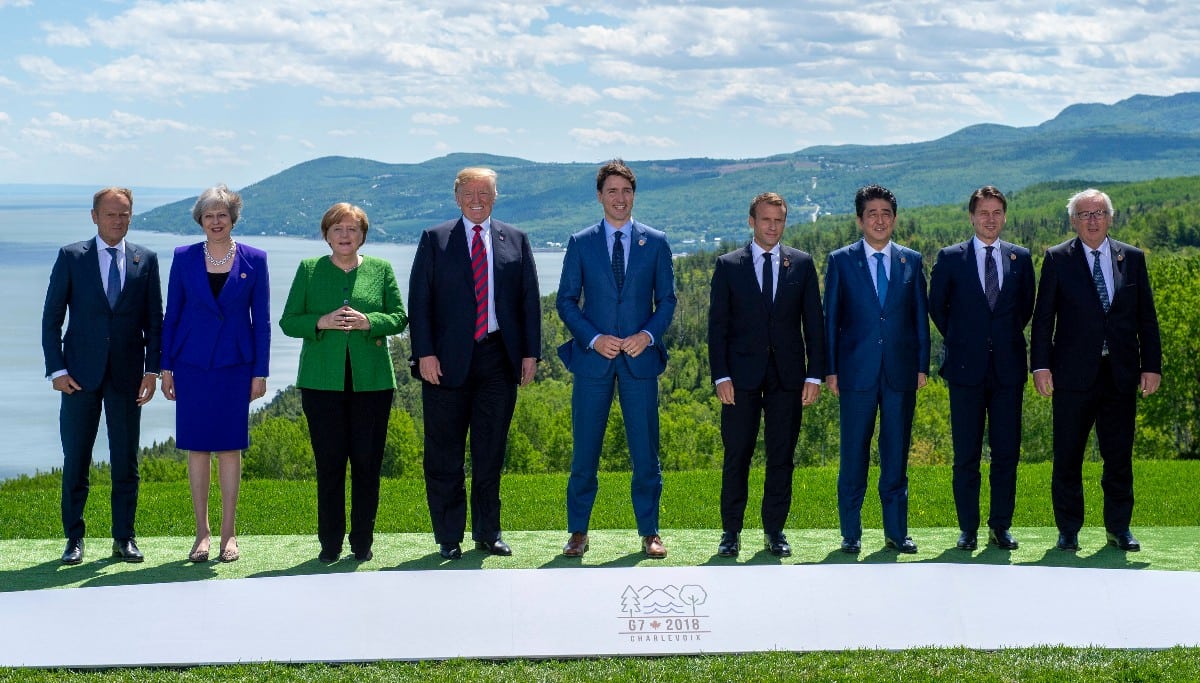 Image courtesy of UK Prime Minister on Flickr
Image courtesy of UK Prime Minister on Flickr
G7 Nations Fired Up After Trump Calls for Russia to Rejoin the Summit
Leaders from Canada, France, Germany, Italy, Japan, the United Kingdom, and the United States came together on June 8th and June 9th in Quebec for the G7 summit. The summit was not expected to go well, especially amidst calls from the United States to allow Russia to attend the meeting. Prior to the summit U.S. President Donald Trump stated, “You know, whether you like it or not, it may not be politically correct, but we have a world to run and the G7, which used to be the G8, they threw Russia out, they can let Russia come back in, because we should have Russia at the negotiating table.”
In 2014, the G7 nations expelled Russia from the summit after it annexed Crimea, formerly a part of Ukraine. Therefore, it did not come as a surprise when all of the G7 nations, except for Italy, snubbed the idea of Russia rejoining the summit. According to a French presidential source, such a proposal did not seem consistent with the latest set of economic sanctions the United States had imposed on Russia. Additionally, British Prime Minister Theresa May stated, “There was a good reason why the G8 became the G7” referring to the annexation of Crimea and that, “any conversations about whether or not Russia can come back round the table cannot take place until Russia has changed its attitude.” Even Russia itself did not seem focused on rejoining the summit, with Kremlin spokesman Dmitry Peskov saying, “Russia is focused on other formats, apart from G7.”
The proceedings on June 8th and 9th went less than smoothly, with tensions rising between the United States and the other G7 countries at the summit. Already angry over the imposition of trade tariffs, it is likely that this proposal only added fuel to the fire. The idea of adding Russia back into the mix seemed to be making light of the multitude of rules it has broken and problems that it has caused.
Following the events of the G7 summit, it is clear that the United States needs to focus on repairing its relationship with the other G7 nations before calling for Russia to rejoin the meeting. By isolating itself from its allies, the U.S. is only putting itself at risk. Allowing Russia into the summit prior to addressing the many issues that it has created, including the annexation of Crimea, is not a beneficial strategy for the U.S. at this point in time. The United States and the other G7 nations need to hold Russia accountable for its actions so as not to put their own national securities at risk.





